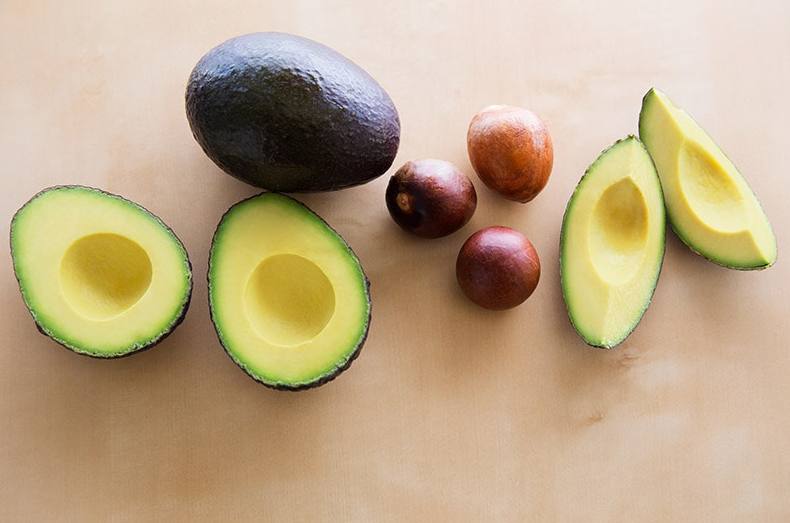The avocado (Persea americana) is globally celebrated for its creamy texture, rich taste, and impressive nutrient profile. Often dubbed a “superfood,” the flesh of the avocado is packed with heart-healthy fats, fiber, and a variety of vitamins and minerals. But beyond the green flesh lies an often-overlooked part of the fruit: the avocado seed, also known as the avocado nut.
While the seed is typically discarded, emerging research and
traditional medicine practices suggest that it may offer a variety of health
benefits when properly processed and consumed. Let’s explore the potential
benefits of the avocado seed and its role in promoting human health.
Nutritional Profile of the Avocado Seed
Avocado seeds are rich in a variety of bioactive compounds,
including:
- Antioxidants:
Especially polyphenols and flavonoids that help fight oxidative stress.
- Soluble
fiber: Supports digestive health and helps regulate blood sugar
levels.
- Amino
acids: Contributing to muscle repair and overall body function.
- Phytochemicals:
Such as saponins and tannins, known for their anti-inflammatory and
antimicrobial properties.
Key Health Benefits of the Avocado Seed
1. Rich in Antioxidants
Avocado seeds contain higher antioxidant levels than the
flesh of the fruit. These antioxidants help neutralize free radicals in the
body, which can reduce the risk of chronic diseases like cancer, cardiovascular
disease, and age-related conditions.
2. Supports Digestive Health
The high soluble fiber content in avocado seeds promotes
healthy digestion. Fiber encourages the growth of beneficial gut bacteria and
helps regulate bowel movements, which may improve overall gastrointestinal
health.
3. May Aid in Weight Management
Due to their high fiber content, avocado seeds may help you
feel full longer, which can reduce overall calorie intake. Additionally, fiber
slows digestion and stabilizes blood sugar, reducing cravings and promoting
metabolic health.
4. Anti-inflammatory Properties
Compounds found in the seed have shown anti-inflammatory
effects, which could help reduce swelling and pain in conditions such as
arthritis. Chronic inflammation is linked to numerous health problems, so
reducing it is crucial for long-term wellness.
5. Supports Cardiovascular Health
Flavonoids and other phytochemicals in avocado seeds may
help lower cholesterol and blood pressure. These effects contribute to a
healthier heart and reduced risk of stroke or heart disease.
6. Antimicrobial Activity
Some studies suggest that extracts from the avocado seed
have antimicrobial effects against certain bacteria and fungi. This property
can help support the immune system and protect against infections.
How to Use Avocado Seeds Safely
Avocado seeds are extremely hard and should never be eaten
raw or whole. However, they can be:
- Dried
and ground into a powder using a blender or food processor
- Added
to smoothies, baked goods, or tea for a health boost
- Used
in extract or supplement form, which is available in some health food
stores
Note: Always consult a healthcare provider before
adding new supplements or unconventional foods to your diet, especially in
concentrated forms.
Final Thoughts
While more scientific studies are needed to fully understand
the effects of avocado seeds on human health, early evidence and traditional
uses point to a wide range of potential benefits. From antioxidant power to
digestive support and heart health, the avocado seed may just be the hidden gem
of the fruit. As awareness grows, it could become an important addition to a
holistic, nutrient-rich diet.
🧪 Research Studies &
Reviews
- Healthline:
Detailed overview of avocado seed composition, potential benefits
(antioxidant, cholesterol‑lowering, anti‑hyperglycemic, antimicrobial,
antifungal) based on animal and lab studies, plus safety concerns with
high doses and lack of human trials frontiersin.org+15healthline.com+15health.com+15.
- MDPI
(Agri Journal): Analysis of polyphenol content (~62 mg GAE/g) and antioxidant
activity (~122–173 mmol TEAC/100 g);
identified specific compounds like gallic acid, catechin, quercetin onlinelibrary.wiley.com+2mdpi.com+2frontiersin.org+2.
- PMC
Review (2022 Food Chem X): Confirms seeds are rich in lipids,
proteins, polysaccharides, vitamins, minerals, with bioactivities like
anti‑hyperglycemic, anticancer, antihypercholesterolemia, anti‑inflammatory
pmc.ncbi.nlm.nih.gov+1pubmed.ncbi.nlm.nih.gov+1.
- Bentham
Science: Highlights traditional use in South America; seeds may
improve cholesterol, blood pressure, inflammatory markers, diabetes; also
have insecticidal, fungicidal, antimicrobial properties frontiersin.org+2eurekaselect.com+2pubmed.ncbi.nlm.nih.gov+2.
- Wiley
Journal (2022): Nutrient breakdown (72% carbs, 4% fiber, 4.6% lipids,
4.8% proteins) and presence of polyphenols and tannins with antioxidant
and antimicrobial attributes onlinelibrary.wiley.com.
⚠️ Safety & Professional
Opinions
- Health.com:
Offers a cautionary perspective—benefits seen mainly in extracts/lab
settings, not whole seeds; notes antinutrients like cyanogenic glycosides;
recommends flesh instead southernliving.com+2health.com+2healthline.com+2.
- Southern
Living (Feb 2024): Dietitian warns of potential harmful
phytochemicals, indigestibility, and stresses lack of extensive human
research southernliving.com.
🏥 Popular Media &
Traditional Use
- Glamour
(2016): Claims seeds contain ~70% of avocado antioxidants and fiber;
suggests drying and using powdered seed in food medicalnewstoday.com+3glamour.com+3healthline.com+3.
- Medical
News Today (2017): Seed husk rich in antiviral, cholesterol‑modulating,
and anticancer compounds; highlights husk as a “gem of gems” medicalnewstoday.com.




